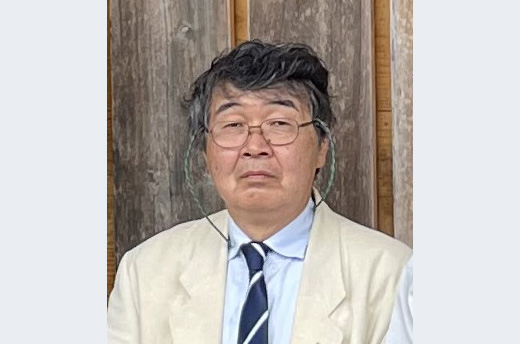About us
Outline of Divisions
Forest Division/University Forest
The Niigata University Forest (NUF) is an experimental forest located on the northern part of the Osado Mountains, Sado Island. Since 1955, it has been used mainly for education and research on forestry and forest ecology. NUF is well-known for huge, long-lived conifers (Cryptomeria japonica), two endemic mammals (Lepus brachyurus lyoni and Sorex sadonis), an endemic beetle (Damaster blaptoides capito), and many endangered perennial flowers. These endemic and endangered species are the unique attributes of NUF. Facilities (including research laboratories, a lecture room, and dormitories for students) are located near the coast, in the northwestern part of the island. Four researchers and seven technicians/assistants belonging to the Division of Forest Science are pursuing their education programs here. In NUF, our aim is to investigate and improve our understanding of the ecology of the endangered species and terrestrial ecosystems of this island and to utilize them for environmental education. Alongside these investigations, as a member of JERN-JaLTER, NUF has been conducting long-term studies on community dynamics of Cryptmeria japonica forest, climate monitoring, and hydrologic studies. Our studies mainly focus on the relationships between environmental stresses (or disturbances) and forest regeneration because NUF ecosystem is heavily affected by strong wind and heavy snow in winter.
Satoyama Division/Research Station for Toki and Ecological Restoration
On September 25th, 2008, ten crested ibises (Toki; Nipponia nippon), which became extinct from the wild 27 years previously, were reintroduced to Sado Island. Using the crested ibis as a symbolic species, researchers and staff of the Satoyama Division conduct research concerning 1) reintroduction biology of the crested ibis, 2) ecological restoration of social-ecological production landscapes (Satochi-satoyama) and 3) restoration of the regional community on Sado Island. To facilitate these studies, we support researchers, staff and students by providing field- and lab-based resources, and provide environmental education programs in ecological restoration for local residents and university students. Current and former participants of the educational programs are expected to play key roles in leading and promoting island-wide ecological restoration and revitalizing the local economy using natural resources. We aim to establish an innovative interdisciplinary field of study, termed “Social-ecological Restoration,” by combining the fields of natural and social sciences to be dispatched internationally. The Satoyama Division of the Research Station for Toki and Ecological Restoration (RSTER) is located in the Toki Koryu-kaikan Building (community center for the crested ibis) in the Niibo area. RSTER features a 30 ha research field restored from abandoned terraced paddies, used as biotopes to conserve biodiversity and restore ecosystem function in the region.
Marine Division/Marine Biological Station
The Marine Biological Station (MBS) was established in 1954 as an independent unit of the Faculty of Science of Niigata University. MBS is the oldest marine biological station on the coast of the Sea of Japan. The marine environments and ecosystem surrounding Sado Island offer a rich variety of living organisms. MBS aims to clarify the diversity of marine organisms and the functionality of marine ecosystem and provides advanced knowledge about the ocean and marine biodiversity in order to develop human resources for undergraduate and graduate students of Niigata University and other universities. MBS has been designated as a Joint Usage/Education Center for Marine Biology of the Ministry of Education, Culture, Sports, Science and Technology of Japan (MEXT) and we offer open and international practical courses in marine biology for studying animal classification, marine ecology, and diversity and adaptation of marine organisms. MBS holds International Marine Biology Course in every summer. Currently, MBS has more than 1,600 visitors annually. Four research staffs and two technical staffs are stationed at MBS, and current research programs include works on reproductive neuroendocrinology, ecology, evolutionary developmental biology, and behavioral ecology of marine organisms.
Office for Community Design
The Center launched the Office for Community Design (OCD) on January, 1st, 2020 to identify local needs and challenges to the advancement of sustainability, and support collaborative efforts for problem solving among various stakeholders. Based on the concept that the design thinking approach enhances communal resilience, OCD coordinates the process of dialogical collaborative inquiry, in which participants share their concerns and think together about possible solutions to problems that contribute to the decline of environmental and social well-being. OCD also seeks to launch community-based academic research projects aimed at establishing ecological and communal sustainability.






